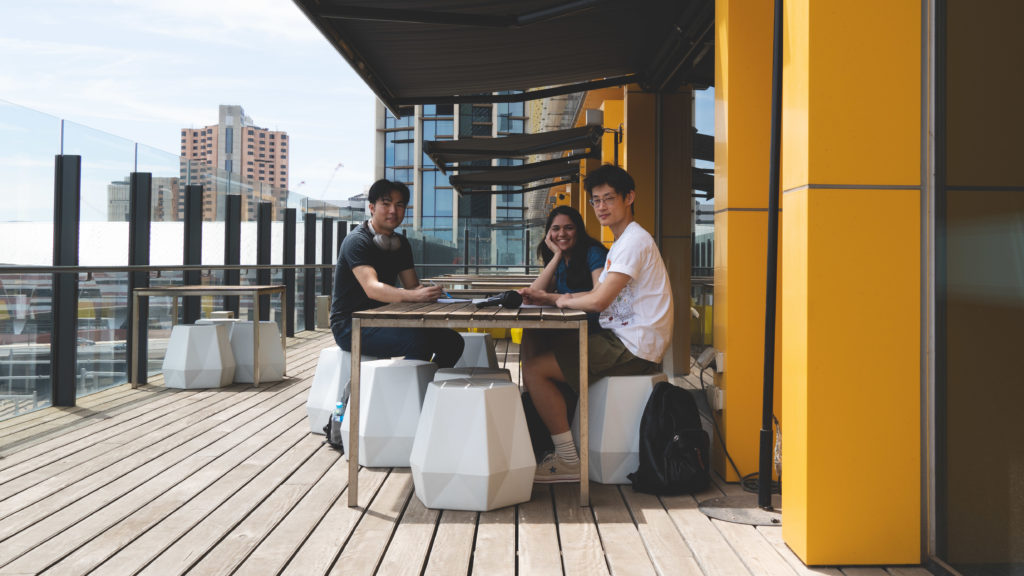In 2018, Bonnie Lin arrived from China, to undertake her bachelor’s degree in psychology at UNSW in Sydney. She loves her degree, especially exploring the science that underlies human behaviour.
When everything changed earlier this year, Bonnie found herself feeling incredibly overwhelmed and riddled with uncertainty. So, ahead of R U OK? Day, we asked Bonnie to share her mental health journey during COVID-19.
—
During March/April this year when there were a lot of uncertainties, I did feel overwhelmed. There were so many things that I was unsure about: When should I go back home? If I go back, when will I be able to return to Australia to continue my study? What will the job market look like when I graduate? All these uncertainties and changes related to COVID-19 added a lot of cognitive burden.
Seeking mental health support
Before the lockdown, I talked to one of the International Student Advisors at the university about time management. I felt I spent too much time reading news about the coronavirus and I wanted to get some advice on it.
The situation was manageable before Sydney entered lockdown. [After that] I felt more stressed and realised that I could not concentrate well to study for one of my mid-term exams.
I decided to contact the Counselling and Psychological Services (CAPS) at my university. After hearing my concerns, the psychologist I met provided two options – to see a psychologist in my suburb or attend an online cognitive behaviour therapy (CBT) program called This Way Up. I chose the latter one as it is more flexible. Meanwhile, I still see the advisor once a week to chat online.
Improvements and achievements
I finished a whole program on This Way Up and talked to my advisor until the end of the first term. I gained a lot of tools from This Way Up to help me reduce my stress. Many of them are things I have learned in my psychology courses, but they feel very different when I actually practise them.
After attending the program, I started to realise how simple things, like exercise, mindfulness or gratitude, can improve my wellbeing. Also, I practised thinking more realistically, noticing and challenging some unhelpful thoughts when I felt worried.
At the same time, I received a ton of encouragement from my advisor. Simply having someone to check in and celebrate small achievements really helped me to keep going on the right track.
Advice for fellow international students
It’s OK to not feel OK, especially this year. Spend more time every day on your physical health, as well as your mental health. Do basic stuff – exercise several times a week, eat healthy food, have enough sleep, and practise mindfulness.
And don’t forget to keep in touch with family back in your home country! I found it particularly helpful to have a video call with my family throughout the entire lockdown.
Finally, when you start to wonder whether you can handle all of this, talk to someone else. Just having someone to listen to you can be very helpful.
R U OK? Day
R U OK? Day is a really good initiative to encourage the community to think about mental health and check in with each other.
[If your friends are going through a tough time], start a genuine conversation with them. By simply asking “R U OK?”, one can feel being cared about and the conversation can be a valuable light in your friend’s life – you never know.
If that is something you are not very confident about doing, you can still approach your friend. Have a chat about things they are interested in, their studies and work, and then see whether you need to get some extra support from professionals.
Interview has been edited for clarity. Header image is for illustrative purposes only and does not feature article subject.
If you’re a student with Medibank OSHC, you can call the 24/7 Student Health and Support Line on 1800 887 283 at any time, day or night. They’ll offer you advice and over the phone counselling as part of your cover. They also have an interpreter service, so you can speak to someone in your own language.






